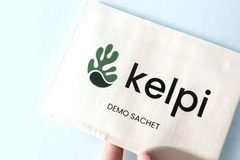SABIC announces “world-first” circular polymers from advanced recycled ocean-bound plastics

30 Nov 2021 --- SABIC is producing the “world’s first” certified circular polymers from the advanced recycling of recovered mixed and used ocean-bound plastic. The petrochemicals manufacturer has achieved this milestone in partnership with Malaysia-based plastic recycling company HHI.
The first consumer products using the certified circular polyolefins from ocean-bound plastic will be announced over the coming months. The polyolefins fall under SABIC’s Trucircle portfolio, which also includes recycled polyethylene (PE) bread bags, bio-based polypropylene face cream jars and recycled PE meat casings.
“We are acutely aware of the challenges we face globally to stop plastic from becoming waste. Developing an entirely circular recycling system is a huge but necessary step we need to take together and will require all players across the value chain to collaborate,” comments Abdullah Al-Otaibi, general manager for ETP and market solutions at SABIC.
“That’s why we’re committed to developing long-term solutions and working with new partners like HHI to significantly upscale the production of more [environmentally] sustainable materials, including those produced using recycled ocean-bound materials, for the benefit of our customers, society and the environment.” Ocean-bound plastics (Credit: SABIC).
Ocean-bound plastics (Credit: SABIC).
According to Innova Market Insights, 26% of global consumers believe waste management companies can be effective in solving the global plastic pollution crisis. Interestingly, 57% see improved consumer behavior as an effective solution.
Community value
In addition to helping protect oceans and waterways, the ocean-bound plastic collection creates value for local communities by increasing the demand for recycled plastic across the industry. The material is recovered by HHI’s partners from ocean-feeding waterways and inland areas within a 50 km radius of the ocean, predominantly in Malaysia.
HHI then converts the recovered material into pyrolysis oil through advanced recycling. SABIC uses the oil as an alternative to traditional fossil materials, producing certified circular polymers.
The material has been certified under the Zero Plastic Oceans accreditation. Meanwhile, HHI is reportedly the first organization to receive certification confirming the material it recycles qualifies as “ocean-bound.”
Five-stage process
HHI has created a model outlining the steps required to facilitate the transition to a circular economy. The model has five stages:
- Collect ocean-bound plastic through its extensive network.
- Convert the plastic into high-quality, manufacturable materials.
- Select partners to create new products.
- Provide customers with the platform to promote their use of more environmentally sustainable materials.
- Encourage a generation of conscientious consumers who will opt for environmentally sustainable materials.
 According to Innova Market Insights, 26% of global consumers believe waste management companies can be effective in solving plastic pollution.
According to Innova Market Insights, 26% of global consumers believe waste management companies can be effective in solving plastic pollution.
“At HHI, our circular economy model helps to guide us in all of our endeavors, from business planning and collaborations with partners such as SABIC to eco-initiatives, as we strive to protect our ocean and communities. We believe we can work toward a cleaner future that views plastic as a valuable resource to keep within the value chain,” says Kian Seah, CEO at HHI.
“We are incredibly proud of what we have achieved so far with SABIC, but also realize that we are early into our journey toward enabling a circular economy, and it is by no means a straightforward one.”
The circular polymers produced from ocean-bound plastic form part of SABIC’s Trucircle portfolio and services for circular solutions. Launched in 2019, the portfolio spans mechanically recycled products, certified circular products from the advanced recycling of used plastic and certified renewables products from bio-based feedstock. It also includes design for recyclability and closed-loop recycling initiatives.
Recent Rabobank research revealed advanced recycling continues to flourish in 2021, despite criticism from NGOs and media reports challenging the cost-effectiveness and environmental performance of these technologies.
By Joshua Poole










